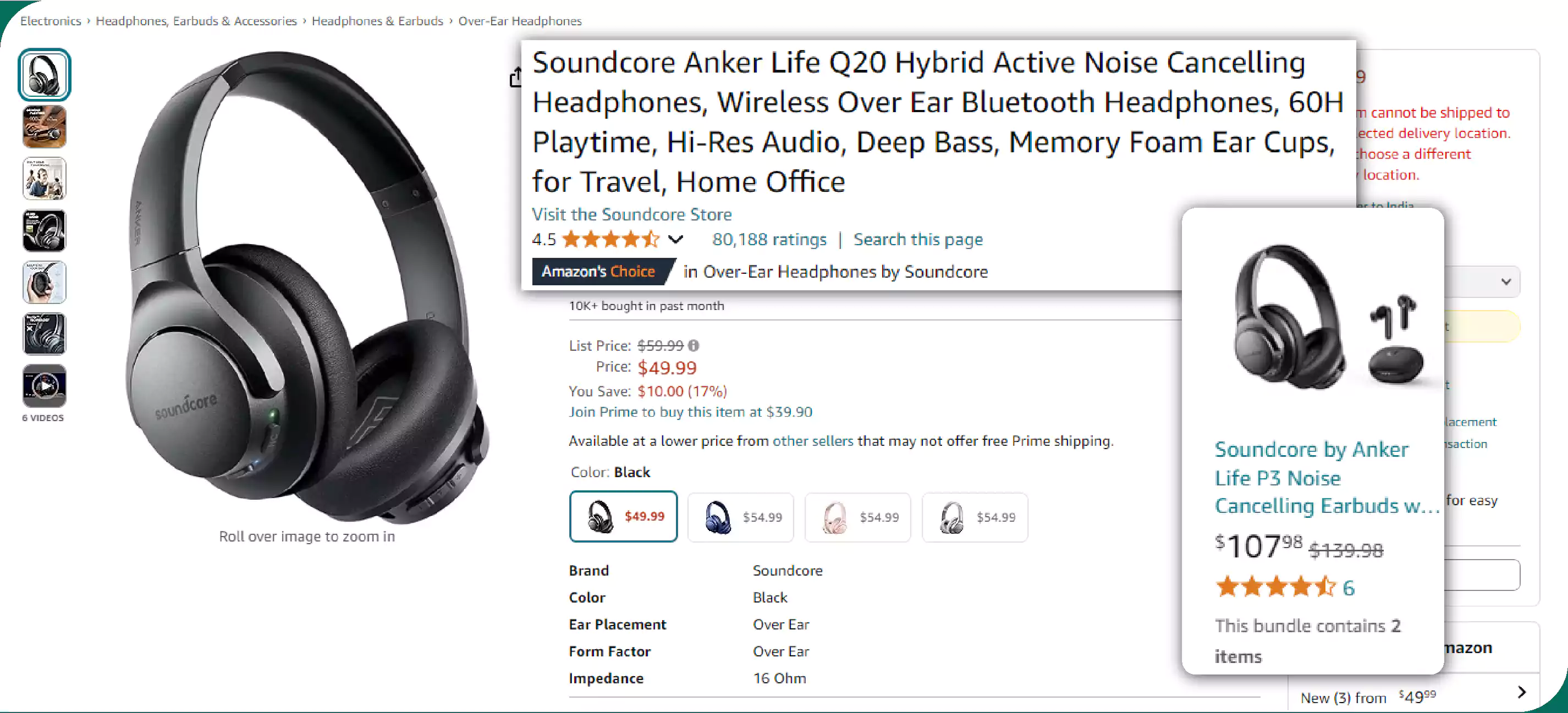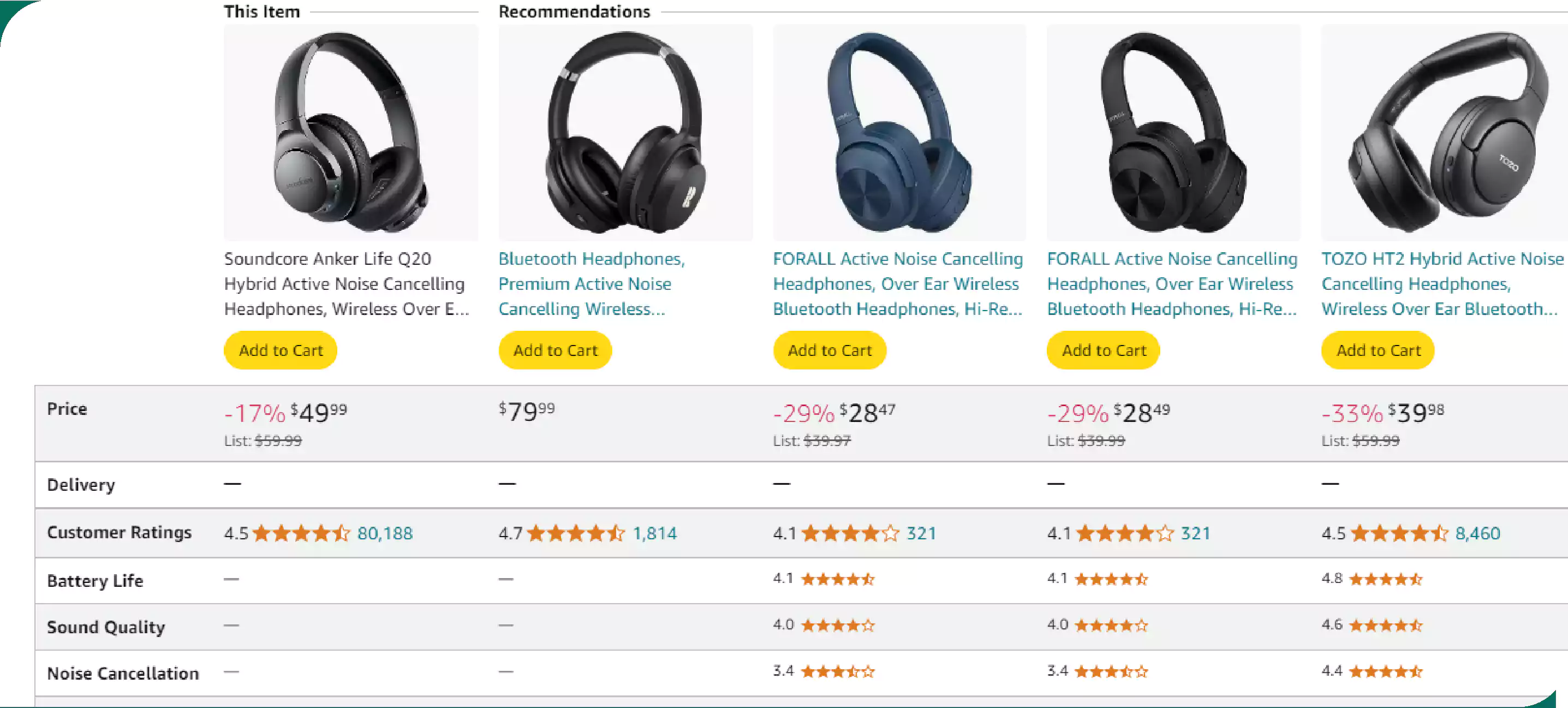Businesses increasingly leverage data in the rapidly evolving e-commerce landscape to gain a competitive edge. E-commerce data scraping has become vital for extracting valuable insights from online platforms. This technique involves systematically collecting data from e-commerce websites to analyze market trends, customer behavior, and competitive dynamics. Accessing and interpreting large volumes of data helps businesses make informed decisions, optimize pricing strategies, and enhance product offerings.
E-commerce data scraping services offer a comprehensive solution for gathering this critical information. These services utilize advanced technologies to efficiently scrape and organize data from various online sources, providing actionable insights that drive strategic planning. By harnessing e-commerce data scraping, companies can monitor competitors’ prices, track inventory levels, and assess consumer preferences in real-time. This enables businesses to stay ahead of market trends and improves their ability to tailor marketing strategies and enhance customer experiences. As the digital marketplace expands, e-commerce data extraction becomes increasingly indispensable for achieving sustained growth and competitive advantage.
Significance of Scraping E-commerce Websites
1. Competitive Pricing Analysis: Utilizing an e-commerce data scraper enables businesses to monitor and compare competitors’ pricing continuously. This real-time pricing information helps companies adjust their prices dynamically to stay competitive, attract customers, and maximize revenue.
2. Market Trend Identification: Scrape data from e-commerce websites to help businesses track emerging market trends and shifts in consumer preferences. This data allows companies to adjust their product offerings and marketing strategies based on the latest market insights and consumer behavior patterns.
3. Enhanced Product Offerings: Scraping detailed product information from various e-commerce sites provides insights into product features and customer reviews. This enables businesses to refine their product lines, develop new offerings, and better align their products with consumer demands.
4. Inventory Management: Efficient inventory management is crucial for operational success. Using the scraped data, businesses can monitor stock levels and product availability in real-time. This helps prevent overstocking and stockouts, ensure optimal inventory levels, and reduce associated costs.
5. Customer Sentiment Analysis: Analyzing customer reviews and ratings collected through e-commerce data scraping offers valuable feedback on customer satisfaction. Understanding these sentiments helps businesses improve product quality, enhance customer service, and promptly address issues.
6. Market Research and Forecasting: Scraping data from e-commerce websites provides information for conducting in-depth market research and forecasting future trends. This data supports strategic decision-making and helps businesses anticipate market changes and plan accordingly.
7. Personalized Marketing: Insights gathered from scraping data from e-commerce websites allow businesses to understand customer preferences and purchasing behaviors. This enables companies to create highly targeted and personalized marketing campaigns, improving engagement and higher conversion rates.
8. Competitive Benchmarking: It helps gather data from multiple e-commerce platforms, allowing businesses to benchmark their performance against competitors. This comparative analysis highlights areas of strength and opportunities for improvement.
9. Product Price Optimization: By scraping data from e-commerce websites, businesses can analyze various pricing strategies and promotions. This information is crucial for optimizing their pricing strategies to ensure competitiveness while maximizing profitability.
10. Fraud Detection: Monitoring and analyzing data from e-commerce websites helps detect unusual activities or potential fraud. Early identification of such issues enables businesses to implement preventive measures, safeguarding revenue and maintaining operational integrity.
In summary, scraping e-commerce websites with an e-commerce data scraper is essential for gaining actionable insights, enhancing business operations, and staying competitive in the fast-paced digital marketplace.
How to Choose the Right E-Commerce Data Scraping Expert?
Choosing the right e-commerce data scraping expert is crucial for effective data extraction and analysis. Key factors include their expertise, technical skills, compliance with legal standards, and ability to deliver accurate, customized solutions tailored to your needs.
1. Expertise and Experience: Look for a data scraping expert with a proven track record in e-commerce data scraping. Evaluate their experience with various scraping techniques, tools, and platforms. A seasoned expert should have a deep understanding of different e-commerce sites and be able to handle complex scraping tasks effectively.
2. Technical Proficiency: Ensure the expert possesses strong technical skills, including knowledge of programming languages such as Python or JavaScript and familiarity with data scraping libraries and frameworks. Their ability to work with APIs and understand website structures will be crucial for successful data extraction.
3. Reputation and References: Research the expert’s reputation in the industry. Check for reviews, testimonials, and case studies from previous clients. Positive feedback and successful project examples are strong indicators of reliability and quality.
4. Compliance with Legal and Ethical Standards: Verify that the expert adheres to legal and ethical guidelines for web scraping. They should be knowledgeable about data protection regulations and respect the terms of service of the e-commerce sites they scrape. This ensures that your scraping activities are both legal and ethical.
5. Customization and Flexibility: Choose an expert who offers customized solutions tailored to your needs. Whether you require scraping from multiple e-commerce sites or need specialized data formats, the expert should be able to adapt their approach to meet your requirements.
6. Data Accuracy and Quality: The expert should intensely focus on ensuring the accuracy and quality of the scraped data. Ask about their data validation and cleaning processes to ensure you receive reliable and precise information.
7. Tools and Technology: Evaluate the expert’s tools and technologies for data scraping. Advanced tools and techniques can enhance efficiency and effectiveness. Ensure they utilize modern scraping tools and stay updated with the latest technologies.
8. Support and Maintenance: Confirm that the expert provides ongoing support and maintenance for their scraping solutions. Data scraping often requires updates and adjustments due to changes in website structures or data formats. Reliable support ensures that issues are promptly addressed.
9. Scalability: Assess the expert’s ability to handle large-scale scraping projects. If your needs grow over time or if you plan to scrape data from multiple sources, the expert should be able to scale their services accordingly.
10. Cost and Budget: Compare pricing models and ensure the expert’s fees align with your budget. While cost is a factor, prioritize the quality and reliability of the service. Avoid choosing based solely on the lowest price, as it may compromise the data and service quality.
11. Communication and Collaboration: Effective communication is critical to a successful partnership. Choose an expert who is responsive, transparent, and open to collaboration. Clear communication helps in understanding project requirements and ensures that expectations are met.
12. Trial or Pilot Project: Consider starting with a small trial or pilot project to evaluate the expert’s capabilities before committing to a long-term engagement. This allows you to assess their performance, data quality, and suitability for your needs.
In summary, selecting the correct e-commerce data scraping services involves evaluating their expertise, technical skills, reputation, compliance with legal standards, and ability to deliver accurate and customized solutions. Ensuring clear communication and considering trial projects can also help make an informed decision.
Conclusion: Selecting the right e-commerce data scraping expert is essential for optimizing data extraction and gaining valuable insights. You can ensure accurate and reliable data by focusing on their expertise, technical skills, reputation, and adherence to legal standards. Customization, ongoing support, and scalability are crucial for meeting evolving needs. Effective communication and a trial project can further validate their capabilities. Ultimately, a well-chosen expert will enhance your ability to make data-driven decisions, improve competitive positioning, and achieve strategic goals in the dynamic e-commerce landscape. Investing time in this selection process will yield significant long-term benefits for your business.
Transform your retail operations with Retail Scrape Company’s data-driven solutions. Harness real-time data scraping to understand consumer behavior, fine-tune pricing strategies, and outpace competitors. Our services offer comprehensive pricing optimization and strategic decision support. Elevate your business today and unlock maximum profitability. Reach out to us now to revolutionize your retail operations!
Source : https://www.retailscrape.com/the-key-considerations-hiring-e-commerce-data-scraping-expert.php



